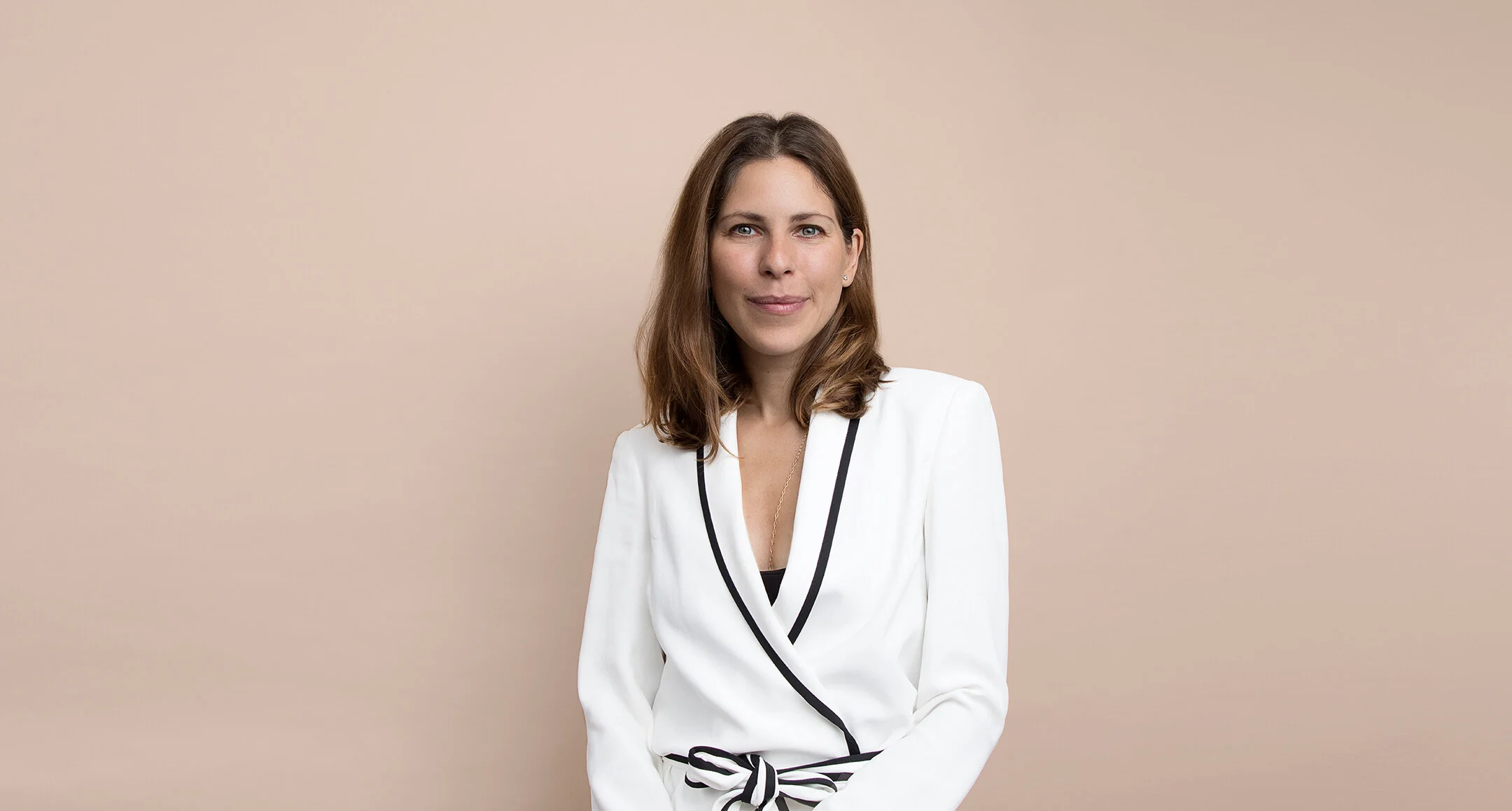Spotlight: Dr. Robin Berzin MD. CEO / Founder, Parsley Health
As part of our Nutrition Edition, we spoke with Dr. Robin Berzin, MD, the founder and CEO of Parsley Health. Dr. Berzin was kind enough to tell us about her own story with pregnancy and postpartum nutrition, and how her company helps with holistic medicine-- - assessing your body as a whole when caring for your health. Dr. Berzin even shared a breastfeeding story, and the recipe for her favorite “Pregnancy Protein” smoothie.
Dr. Robin Berzin, MD is the founder and CEO of Parsley Health. A Summa Cum Laude graduate of the University of Pennsylvania, Robin completed medical school at Columbia University’s College of Physicians and Surgeons and trained in Internal Medicine at Mount Sinai Hospital in New York City. She has also trained in functional medicine with the Institute for Functional Medicine. In 2011, she co-founded the physician communication app Cureatr and currently advises numerous startups in healthcare and wellness. Robin founded Parsley Health in order to make whole-body, transformative medicine accessible to everyone through better services and smart technology.
Can you give a brief overview of holistic medicine?
Parsley Health looks at your body as a whole when we assess your health. That means if you come in complaining of digestive issues, we will look at the status of your gut health, but also your hormones, your stress levels, your diet, and other factors that might contribute to your symptoms. In a nutshell, our approach to holistic medicine looks for the root cause--the “why”--behind the symptoms, rather than just “what” you have.
To do that, we first use advanced testing—think genetics, hormones, and your gut microbiome, in addition to inflammatory and metabolic markers, nutrients, and more. Then, we get to know your health history, lifestyle, and goals so we can craft a personalized care plan tailored to you. We use nutrition, sleep, stress management, supplements, movement, and more to heal the body from the inside out.
We'd love your insights on breastfeeding. If you breastfed, did you experience any challenges you'd be willing to share? Was nutrition a part of it? How did that look for you?
With my son, who is now over 3 years old, I had a challenging time breastfeeding. We never figured out the latch and I decided to exclusively pump, but even then, I put a lot of pressure on myself. Eventually, we started making formula at home. With my daughter, who is now seven months, I was determined to have a different experience with breastfeeding, so I worked with an incredible lactation consultant. I learned so much and had an entirely different experience this time around. Everyone says the second time is easier, and maybe they are right, but I also learned some tricks, like how to hold my nipple in the right way to get the latch--the position is called The Taco!--and how to do mini pumps after feeding for 8-10 min to juice my supply. I also got with the program and drank a lot more water. Finally I had a boost, [and]due to COVID, I wasn’t traveling, so I got to be home more with my baby girl which definitely made breastfeeding easier.
Did your experience differ between your two children, as it relates to food/nutrition?
I focused on the same things both pregnancies. First, eating plant-based paleo foods, which for me means a lot of veggies, healthy sources of seafood and whole grains and legumes and a little bit of grass fed red meat here and there. Avoiding refined sugars and flours is key, especially during pregnancy when your blood sugar is already higher. And exercising as much as possible--for me mainly yoga and weights--because lean muscle mass is what keeps your blood sugar in check and your energy up. Already having another child made getting my yoga in with [my second] baby harder, but I was committed to it because it’s what made me feel good. Second baby was harder for me in that, by the end, I was just tired. Even in the delivery room my OB said, “Wow, the theme of this pregnancy is tired!” which made me laugh,but she was right; I was tired between work and my son. But I compensated for that by getting weekly massages or acupuncture, things I skimped on more when I was pregnant the first time. Taking care of myself became a matter of keeping myself going.
How is Parsley Health shaking up the health industry? Do you have any unique positioning around pregnancy and postpartum?
At Parsley Health, we’re looking at things that aren’t considered by your conventional doctor, and we’re putting them on the prescription pad, too. What you’re eating, how you’re moving, your relationships, your environment, your mental wellbeing—it all matters for your health. Particularly for mamas and mamas-to-be, having a doctor who is looking at these aspects of your health is nearly unheard of.
We see a lot of women who are having trouble getting pregnant and often we are able to help them get their body in the best state for fertility by balancing their hormones, managing blood sugar, and ensuring they’re getting the proper nutrients based on their lifestyle and genetic makeup. We also help women throughout pregnancy to optimize their diet, closely monitor lab work, and answering any questions that come up along the way. Your OBGYN is there to make sure your baby is healthy, but we’re there to support the mother as well. Postpartum, we help new moms get in essential nutrients if they’re breastfeeding, manage the stress of motherhood, and help with recovery.
As a busy mom of two, and CEO/Founder of Parsley Health, what are some things you absolutely cannot live without on a daily basis in your eating and nutrition plan?
Smoothies are honestly a lifesaver for me. Between running a business, seeing patients, and taking care of my two little ones, I need a quick, easy breakfast or lunch option that I can eat with one hand. My diet is mostly plant-based Paleo, so smoothies are a great way for me to pack in plant-based protein, greens, fat, and fiber. They’re also ideal during pregnancy when sometimes you don’t have much of an appetite but know you need to get in a whole foods-based meal that helps maintain your blood sugar. They can also act as a way to hide an additional serving of greens and protein, which many pregnant women develop aversions to. Getting in meals every 3-4 hours can also help prevent nausea while pregnant (an added bonus for many of us in the first trimester!). This recipe was one of my go to’s during pregnancy:
Robin’s Pregnancy Protein Smoothie
Ingredients:
1 cup wild organic frozen blueberries
1 cup frozen organic spinach
3-4 large mint leaves
2 scoops plant-based protein powder
1 tbsp nut or seed butter (I love almond butter or tahini to make it creamy)
1 tbsp flax seed
Directions:
Place all ingredients in a blender and blend until creamy.
Pour into a glass and enjoy!
This easy morning smoothie makes for a satiating meal to start the day equipped with protein from plant-based protein powder, healthy fats from flaxseed and nut butter, and a whopping dose of vitamin C, antioxidants, fiber, potassium and folate from blueberries and spinach. Topping this smoothie off with mint adds a fresh flavor and can help keep digestive issues (such as morning sickness) at bay.

